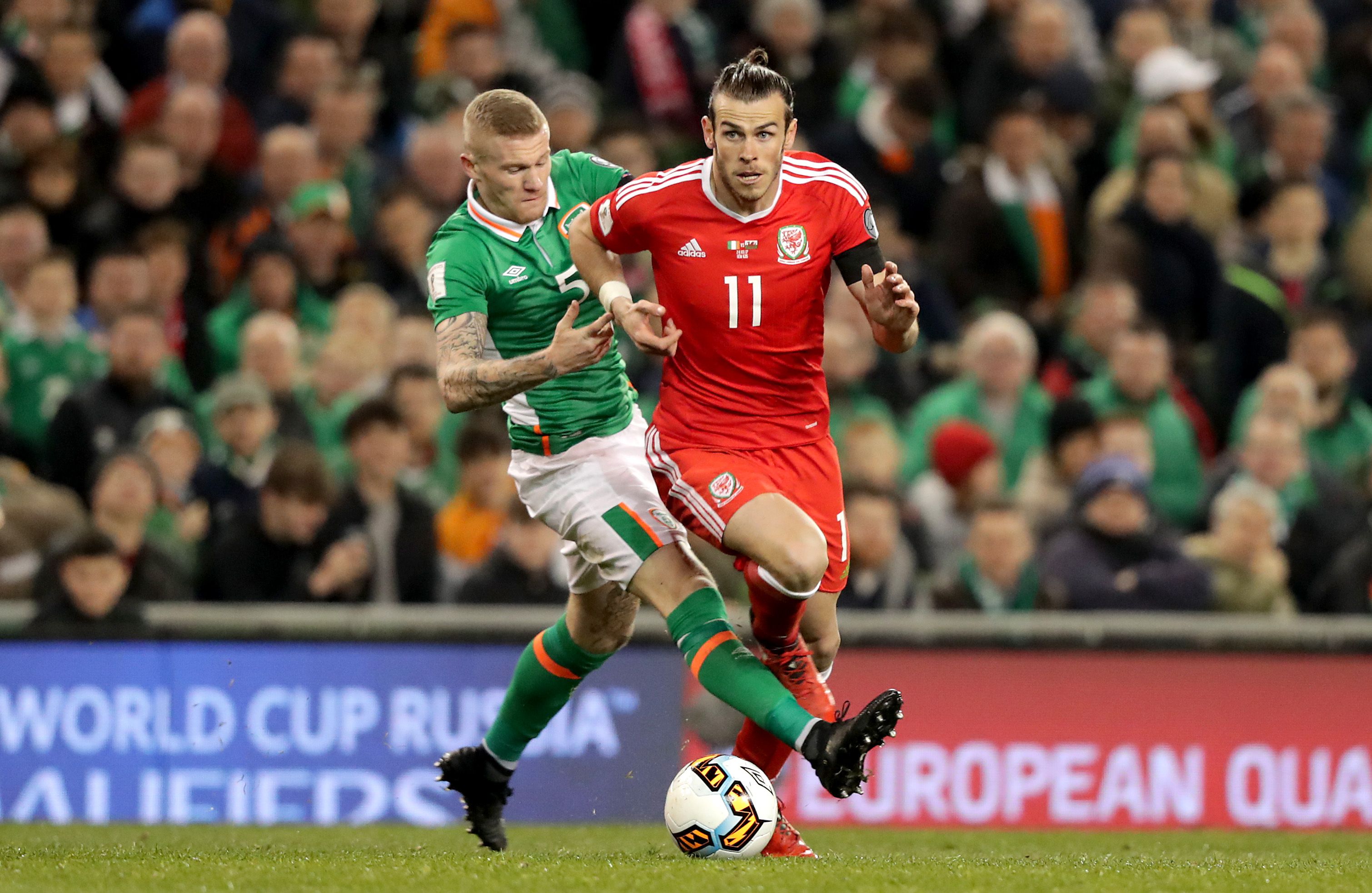

Share
24th March 2017
09:58pm GMT

In the build-up to this game, it was said Ireland needed that moment, they needed to take the opportunity to remind Gareth Bale that he would be in a game. Keane, who has dismissed the significance of his tackle on Overmars, noted that it would be a way to stop Bale.
Ireland were able to stop Bale here at the Aviva, but what they couldn’t figure out was how to start. The game will be remembered for Neil Taylor’s horrible tackle on Seamus Coleman and we must wait to find out how long Coleman will be out for, but his season is over and his leg is broken.
Taylor crossed the line in a game which finished scoreless and had nothing to offer but aggression. Ireland might have won it when they played against ten men, but even with the advantage of an extra man, they couldn't create chances.
So they fell back on effort which was how they started the game. When James McClean charged into Bale in the opening minutes, the game had delivered its Overmars moment, but it didn’t deliver much more.
 McClean, wearing ‘5’ in honour of Ryan McBride, played with a controlled and disciplined aggression which set a standard for Ireland.
McClean, wearing ‘5’ in honour of Ryan McBride, played with a controlled and disciplined aggression which set a standard for Ireland.
After Taylor's dismissal, he could have scored when he shot wildly with his left and then immediately tried again with his right but that shot was deflected wide.
This summed up Ireland. Even their moments in front of goal were characterised by a lack of composure as if they were required to harry themselves as well as the opposition.
In their ability to stop their opponents playing, they couldn't be questioned but, having won in Vienna, they should have hoped for more than a point which would keep Wales a safe distance behind them.
Chris Coleman's side will have to go to Serbia without Bale who will be suspended, but Robbie Brady's yellow card in Vienna and Wes Hoolahan's injury robbed Ireland of whatever creativity they have here.
So they fell back on other qualities. In that, they couldn’t be questioned. They hustled and then hustled some more, and when they asked if there was anything else they could do, they just went and hustled again.
Neither side had a shot on target in the first half which became, essentially, one big reducer. Wales gave glimpses that they could play, but they revealed that ability sparingly.
Ireland, on the other hand, played at the limit of their limitations. James McCarthy’s withdrawal just before kick off could, in retrospect, be said to have been a blow to Ireland’s hopes of playing an expansive game, but that would only be said by people who hadn’t seen much of McCarthy in an Ireland jersey.
It was tempting to wonder why teams needed so long to prepare for this. On the evidence of this game and many others, international football takes up too much of the calendar. Ireland played as if they could have prepared as well if they’d met up on the morning of the game having travelled on the overnight ferry.
Many wondered if this was worse than Ireland’s victory over Georgia last October, but some had no memory of this game at all which may be international football’s secret. People forget the pain of watching it which allows us to go and watch it again.
But in the space of a minute in the second half, the game transformed. The controlled aggression became something wilder and more dangerous.
Bale could have been sent off for a high tackle on John O’Shea, Taylor ’s horrendous challenge on Coleman saw him dismissed. The concern on the faces of Coleman's team-mates told the story and he left the field on a stretcher, clutching an oxygen mask.
Ireland had twenty minutes to win the game against ten men, but everything was just more hustle. Shane Long had a header hooked off the line and Aiden McGeady was sent on to do what he has been doing at Preston.
But it made no difference. Bale could have been dismissed again when he made a high challenge on McClean, but then he ran at Ireland and shot narrowly wide.
There was time for one last frenzy, one last roar but it was fruitless. The game will be remembered for the wrong reasons when for a long time it seemed as if it wouldn't be remembered at all.
Explore more on these topics: